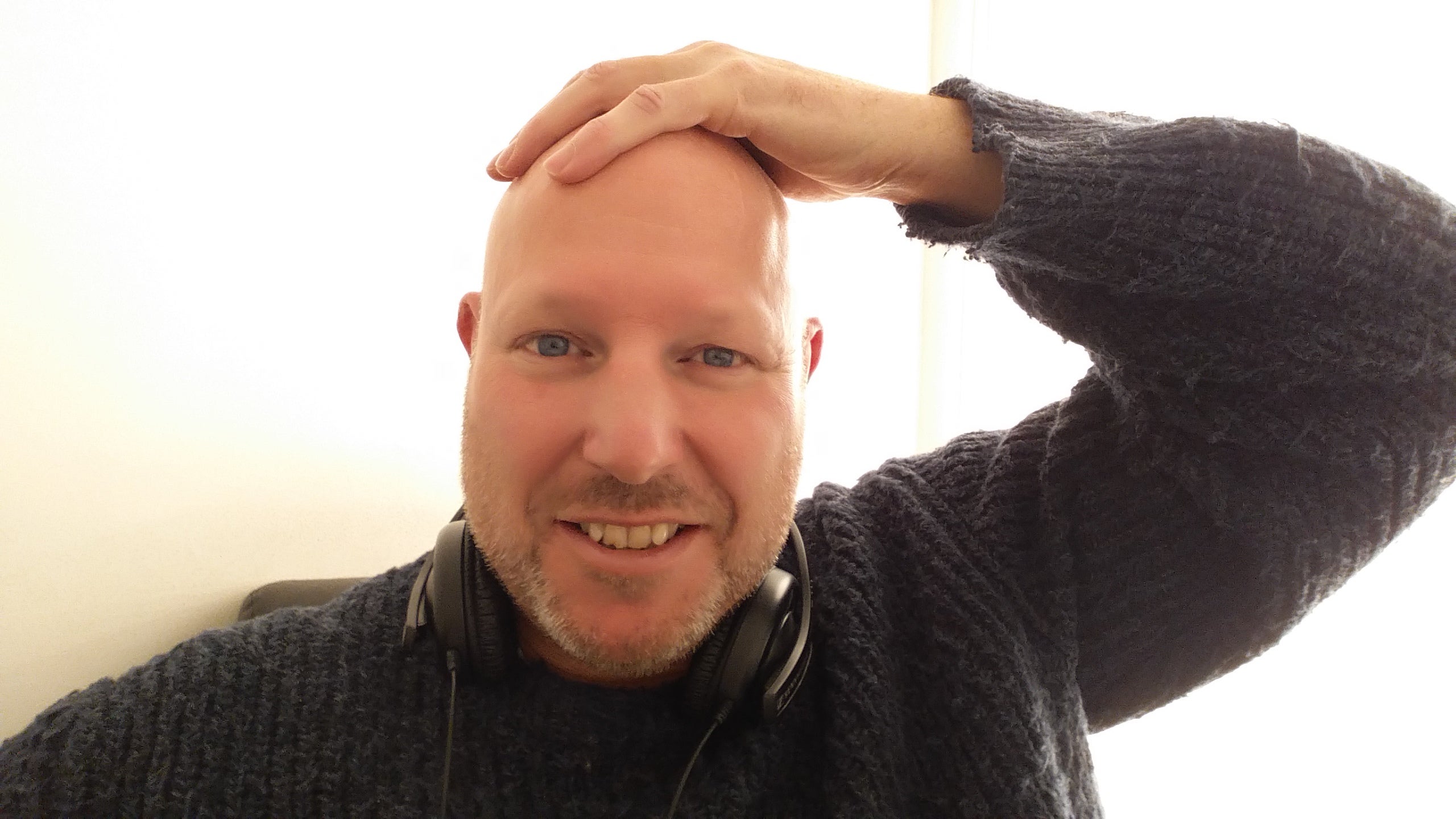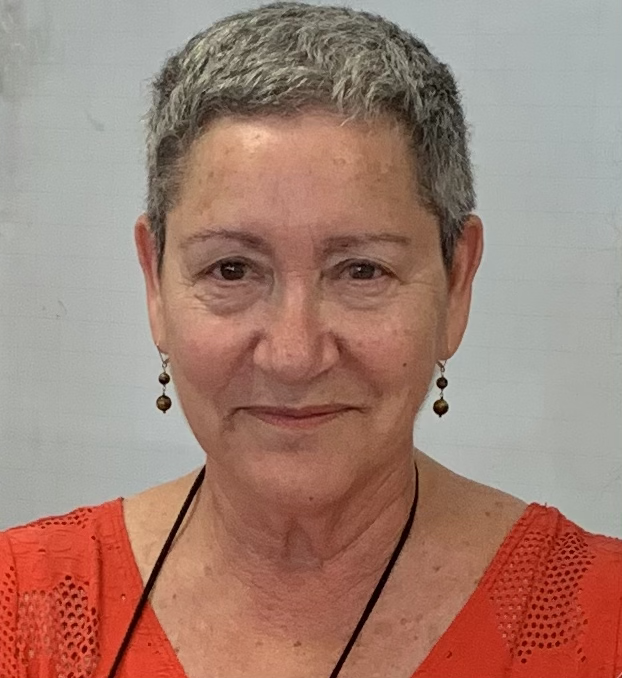The English teacher, Oxford University Press, and an accusation of heinous plagiarism
That plagiarism is the ‘sincerest form of flattery’ means nothing when you believe your life’s work has been stolen. This is what Jason West believes Oxford University Press did to him. He tells Steve Boggan his story


If you google “plagiarism” on your computer, you come up with all sorts of clever quotes. And if you google “articles on plagiarism” you find lots of pieces that have used these quotes before, usually in introductions giving the impression that the author is employing them for the first time.
The most oft-used quote is TS Eliot’s “Immature poets imitate; mature poets steal” (though the American literary critic Lionel Trilling is credited with something very similar). There is a whole series based around “copying from one person is plagiarism, but copying from lots is research”. They all seem to have been borrowed from one another to some greater or lesser extent.
However, the aphorism that might best resonate with 54-year-old English language teacher Jason West is this one: “Saying that 'imitation is the sincerest form of flattery' is a pithy contrivance to help us cope with grief.” It was apparently contrived by Peter Bray but none of the dozens of lists of Best Plagiarism Quotes – all apparently copied from one another – elaborate on who he is. My money is on the Canadian TV producer Peter Bray, who died in 2007. At least, that’s who comes up when you google it.
Read More:
The reason Bray’s quote might best describe West’s take on plagiarism is that when you talk to him about his work allegedly being plagiarised, West seems genuinely grief-stricken, as if something has been taken from him that can never be replaced.
“You could call it my life’s work,” he tells me. “So, to see it being used without my being credited – or paid – is heart-breaking. But I think what angers me most is the way I feel my research was manipulated out of me. I hadn’t expected this kind of behaviour from such a respected organisation. I mean, they’re supposed to represent the highest standards in academia.”
The organisation that West claims plagiarised his work isn’t some back-street language school or mail order purveyor of old-fashioned learning. It is none other than the Oxford University Press (OUP), the arm of the university that has been churning out books since 1478.
Of course, OUP strenuously denies taking West’s work and says it has even investigated his allegations, establishing that they were unfounded. And as we shall see later, a court has also dismissed a damages claim brought by him. However, OUP won’t release details of its internal investigation for you to read – even though Oxford University received almost £100m in research grants from the public purse in 2019-20 – so here’s a brief account of what West says happened. As you will see, this has been going on for a long time; some kinds of grief, it seems, take longer to heal than others.
West, who lives in Weymouth, had been teaching English for more than a decade and was running a language school of his own in London when, in 2001, he came to the realisation that students hated being in stuffy classrooms and learnt faster when he took them out into the street, to markets, libraries, the theatre and so on, and encouraged them to chat to the locals. And what encouraged him most was how helpful the locals were when stopped by nervous students asking the price of a turnip or for directions to the Tower of London. This was the beginning of a course that he called English Out There and, later, Languages Out There.

In 2006, when most of us were being baffled by the arrival of magical tools on the internet designed to help us keep in touch with each other – platforms such as Facebook and Skype, generically known as “social media” – West was already seeing their potential for education.
“It seems hard to believe now, but back then, these were seen only as something that would allow us simply to say ‘hello’ to more people – or to help some savvy individuals grab their 15 minutes of fame,” he says. “But I immediately began to imagine people in Thailand or Spain or Brazil making contact with people in the UK and using social networking to practise their English – and, of course, vice versa.”
I really wanted to work with OUP because of its reputation, so I gave them the benefit of the doubt and told them how English Out There worked
West’s experience of the kindness of strangers towards his students in the street gave him faith that this would work online too. He began to create courses and learning tasks with social media built in to them. He estimates they involved 250,000 hours of research before becoming fully-formed. As we shall see later, he claims these were the first of their kind in the UK – and possibly the world.
So why is this significant? Well, because English language teaching (ELT) is a big – in fact, enormous – business. According to the US market analysts, Meticulous Research, the global value of ELT is expected to reach almost $50bn a year by 2027.
In his foreword to a 2019 British Council report entitled “The English Effect”, Mark Robson, the council’s director of English and exams, said: “The English language is perhaps the United Kingdom’s greatest and yet least-recognised international asset. It is a cornerstone of our identity and it keeps us in the mind of hundreds of millions of people around the world, even when they are not talking to us.”
Almost 2 billion people worldwide speak English to some degree – and billions more want to. After Pearson, OUP is the world’s biggest ELT publisher. According to its latest accounts, OUP’s ELT-based sales amount to £259m per annum, so when, in May 2010, its New York office agreed to take a meeting with West’s US agent to discuss the possibility of incorporating his social media courses into its latest ELT book, it looked as if he could be heading for the academic version of a big hit. Among his contemporaries, West’s methods were seen as fresh and streetwise compared with the stale, classroom-led methodology of previous decades.
West got OUP in New York to sign a non-disclosure agreement and his representative attended a meeting on 10 May 2010 at which his English Out There materials and methods were laid bare.
The meeting appeared to go well. However, on 24 May an OUP publisher emailed West’s US representative, to say: “Supporting communicative skills using social media and other methods outside the classroom would be a significant departure from our current core business. While I absolutely see the benefit to students in providing this, I am not sure that this would fit within our current business models.”

West took the rejection on the chin and continued to develop his social media learning courses. In August 2011, Anita Adnan, an experienced ELT teacher and PhD student from Nottingham University, became so impressed with West’s methods that she travelled to London to conduct this interview with him:
“He was way ahead of his time,” she says. “I had been an English teacher since 1996 and I had never come across such teaching methods until I met Jason. There was only a small part of the ELT community talking about social media at the time, and we thought it was revolutionary. To combine this with teaching that actually worked was amazing.”
Two months later, it seemed OUP was interested again. West received an email from an Oxford-based in-house intellectual property lawyer that read: “My attention has recently been drawn to your innovative service and I would appreciate an opportunity to make introductions and discuss whether there might be any areas of potential collaboration.” He invited West to OUP’s offices in Oxford on 31 October 2011.
The invitation came hot on the heels of an article on English Out There and West’s use of social networking by Outsell Inc, the publishing business research group, suggesting his company could be a future competitor to the big five ELT publishers, OUP, Cambridge University Press, Macmillan, Pearson and Cengage Learning.
The piece, headlined “Targeting the ELT Big Boys”, concluded: “When it comes to operating in a global economy, courses like English Out There, which are low priced, can prove efficacy and work well in a social networked environment, must be on the radar of the major ELT publishers.”

West recalls: “When they invited me to Oxford, I was excited but a bit surprised, too, because New York had already told me that social media didn't fit with their business model. But I really wanted to work with OUP because of its reputation, so I gave them the benefit of the doubt and told them how English Out There worked.”
Afterwards, the OUP lawyer praised West’s “innovative community-centred approach” and said OUP’s editorial team would conduct a review of his content and get back in touch. But it was not until 20 March 2012 that the lawyer who invited him put West out of his misery in an email in which he said: “[Languages Out There’s] approach to the ELT market and reaching teachers and students via social communication platforms is genuinely interesting. However, assessed from the perspective of a publisher, we do not feel that LOT offers the type of materials that we could bring within our catalogue.”
Three months later, OUP published Network - Get Connected a course book based on a publication that had been in print for years…but which now contained social media tasks and teaching methods at the end of each chapter that West, and many of his contemporaries, believed bore striking similarities to his. During his five months of contact with OUP about social network learning, not one OUP executive had mentioned that social media was to form an important part of an upcoming ELT book. On the contrary, West had been repeatedly told that it did not fit in with OUP’s business model.
To add insult to apparent injury, OUP went on to market Network as “the first course to use social networking to help students succeed in English”.
“I couldn’t believe they would do that after the meetings in New York, and then in the UK, and all their examination of our social media courses – which they said didn't fit in with their way of teaching,” West says. “They knew it wasn’t the first.”
At the centre of the argument is the inclusion in both courses of specific learning stages and the order in which they are tackled by the student.
For five months he had asked how the review of his work was going, but, increasingly, he seemed to have been treated by OUP executives as a figure of fun
“Most teachers hop around in course books from section to section and introduce supplementary materials along the way – it’s always been like that,” says West. “But English Out There was unusual in that tutors were instructed to follow a linear path, otherwise our thousands of hours of research showed that the students wouldn’t be able to perform their English practice over social media. Network instructed tutors to follow this same path.”
Anita Adnan, the ELT teacher who had filmed West, says: “When I saw what OUP had brought out, my first thought was. ‘Wow, Jason’s working with OUP. He must have done a deal with them’. As far as I was concerned, it was his work. I was very shocked when I found out they had done this without him.”
Another veteran ELT specialist familiar with West’s development of social media in teaching is Canadian Dr Nellie Deutsch. She was one of the first people to embrace the internet as a tool for teaching, as far back as 1992.
“I was shocked when I heard that OUP had claimed to be the first to use social networking in ELT,” she says. “I have proof of Jason's work. He was on a panel discussion that I organised in 2011 in London for the International Leadership Association. I have a recording of the panel discussion with Jason introducing his work before OUP came out with their book.”
These were not alone. West launched a petition calling upon OUP to investigate and “publicly explain” its actions. It was signed by 226 people, including dozens of ELT specialists. It was presented to the then Oxford University Vice-Chancellor Andrew Hamilton but appears to have been ignored. West accompanied it with a personal message but received no response.
West reported OUP to the Trading Standards authorities, which ordered OUP to remove the claim to be the first ELT course to embrace social networking from all its marketing materials. However, OUP continued to reject West’s claims that its executives knew about his work and research, and used it.

In 2015, West went over the heads of OUP executives and applied to Oxford University to see internal correspondence about him and his coursework. He made a “subject access request” under the Data Protection Act, a process that enables citizens to see what information organisations hold on them.
“I was shocked by what was revealed to me,” he says.
First, he found that after the New York meeting, but before he was told by OUP that “using social media and other methods outside the classroom would be a significant departure from our current core business”, one senior editor had circulated an email that read: “First impressions are positive”, adding: “From our perspective, if we could form some kind of partnership, I can see a key attraction would be that we would benefit from the digital funkiness factor that we don’t currently seem to have.”
She concluded with a question: “I assume this would be a distinct product strand or would there be any proposal to marry our existing content…with this format?”
Network – Get Connected did indeed go on to become the marriage of an existing publication, English For Life, with stand-alone social media tasks and teaching at the end of each chapter.
The emails released under West’s request made for difficult reading. For five months he had asked how the review of his work was going but, increasingly, he seemed to have been treated by OUP executives as a figure of fun. The emails took on a sneering tone when West repeatedly inquired as to the progress of the review of his work. One executive sarcastically described him as “eager” while another said he had a tendency to “pester”.
OUP’s argument, repeatedly made, was that the executives in the New York group knew nothing of the Oxford meeting and vice versa
On 27 January 2012 – three months after the meeting – one senior staff member wrote to another with the subject line: “Some more verbiage needed,” asking: “Please could you flesh out your reasons for not making use of the Languages Out There content in some way? The person concerned has been relentless in seeking a response and I don’t feel I can go back with simply ‘You’re too street’. Could you supply a little more analysis/verbiage?”
At one point, one executive asks another if he should send West “a dink letter”. Dink is a slang word for jerk, idiot or fool.
This correspondence took place just months before the release of Network and while West was being told social media teaching didn't feature in OUP’s core business model.
In November 2012, Eric Gundersen, executive publishing manager at OUP in the US, had written to West, rejecting his claims of plagiarism. He wrote: “While the English Out There website was reviewed by OUP colleagues in other parts of the organisation, no member of the Network team reviewed English Out There during the development of this project. In addition, to our knowledge, no OUP employee enrolled on to a course or purchased materials from this site.”
OUP’s argument, repeatedly made, was that the OUP executives in the New York group knew nothing of the Oxford meeting and vice versa. They were two separate groups with no attendees in common, and nobody who saw West’s work in New York was involved in the production of Network.
Our review of the evidence to date has identified an apparent offence of fraud by false representation committed by three OUP employees…in the course of their dealings with Mr West
With the last of his savings – and even before gaining access to the internal emails – West had hired Edmonds Marshall McMahon (EMM), a firm of solicitors comprising former lawyers from the Crown Prosecution Service, to examine the case.
In a letter to OUP’s solicitors, senior EMM partner Kate McMahon subsequently identified several executives with connections to New York and Oxford who would have had knowledge of West’s work before Network was published. And she named two OUP executives who had accessed and downloaded material from the English Out There website.
She concluded: “Our review of the evidence to date has identified an apparent offence of fraud by false representation committed by three OUP employees…in the course of their dealings with Mr West.”
None of those three executives is named in this article. They have been reported to Thames Valley police which this week said the allegations against them “are still being assessed”.
While OUP’s Network flourished – and continues to do so – West’s business declined. The grief and anger he continued to feel had a detrimental effect on his mental health and general wellbeing. His business withered. His relationship of almost 20 years came to an end.
In late 2018, in a desperate attempt to have his day in court, West’s company, Languages Out There Ltd, sued OUP for his £59.60 train ticket to the Oxford meeting, for the time involved in legal preparation and the cost of medical prescriptions for his deteriorating health, a sum totalling £3,234.57. He alleged he had been the victim of fraud by deceit. However, OUP’s lawyers successfully applied to have the case struck out as an abuse of process. His request for an appeal was flatly refused on the grounds that it would have no hope of succeeding.
West had hoped that his case would allow him to subpoena internal documents and question executives during a hearing. He represented himself and was roundly defeated by OUP counsel. The hearing lasted under three hours. The costs racked up by the OUP legal team in preparing and presenting their case to strike out a claim for a £59.60 train ticket were £109,962.94.
During the hearing, OUP counsel, Edward Brown, repeated the claim that the groups in New York and Oxford were not interconnected. “[West] considers that he was invited to a meeting effectively under false pretences and, in fact, Oxford University Press had no intention of reviewing his material or indeed considering collaborating with him.
“It’s simply wrong. Oxford University Press did review the claimant’s material and they invited him to the meeting because, unsurprisingly, they wanted to have a discussion with Mr West about his project. And this was a meeting that was attended by a number of professionals within the organisation. It would simply make no sense for those people to spend their time meeting with the claimant if they weren’t interested in what he had to say. And that’s all that that meeting was about.
“But the answer to the specific question – why was he not told about Network - Get Connected at the Oxford OUP [meeting]? – is it was a different branch of the organisation. OUP is a large international organisation. It has operations in Oxford, operations in North America, operations in South America and across the world. It’s not at all unusual that there might be something happening in the US that is not visible to the people in Oxford. That’s the simple explanation that we’ve given and there’s nothing to suggest that any of that was untrue.”
Judging by the internal emails describing him as an eager, pestering “dink” he was, at the very least, treated without the respect he deserved
However, West and his lawyers did identify several overlaps, not least involving a senior OUP executive who played a part in reviewing materials following the New York meeting, and who also downloaded information from the Languages Out There website just two days before the Oxford meeting. Another, who was in a senior role when his work was being reviewed in New York, has her name on the inside cover of Network - Get Connected.
When Gundersen had written to West in 2012 (above), he said the social media elements of Network had “been developed by author Kristin Sherman and other writers in conjunction with a social media consultant Daniel Latorre”.
I emailed Latorre, who is based in New York, to ask whether I could discuss his consultancy work on Network. He said I could. When I asked for the start and end date of his consultancy with OUP and whether West’s work was either shown to him or mentioned, he did not reply, in spite of a follow-up request for answers.
I also contacted co-author of Network, Kristin Sherman, a 64-year-old a freelance ELT materials writer based in Charlotte, North Carolina, using LinkedIn, Facebook and email. I also asked OUP to arrange an interview with her, but none was forthcoming.
Gundersen had credited her with creating the social media aspects of Network (the rest of the book, authored by Tom Hutchinson, is not in question). Gundersen said Sherman’s social media input was “borne out of a series of research workshops carried out with teachers in Brazil (June 2010) and Mexico (November 2010) and then confirmed through subsequent research in Taiwan and Korea (April 2011).”
The start of Sherman’s research into social media and language teaching referred to by Gundersen began just one month after the Languages Out There/OUP meeting in New York, after which West was told by OUP that “using social media and other methods outside the classroom would be a significant departure from our current core business”.
Sherman did not respond to any of my requests for an interview to discuss West’s allegations. She does not mention her work with Oxford University Press or her co-authorship of Network on her LinkedIn profile.
However, she does appear in several OUP promotional videos on YouTube published to coincide with the launch of Network. You can see her in this one telling an interviewer: “I’m not an expert in social media.”
And, contrasting with the six years West took to develop the social networking methodology he twice showed OUP, Sherman tells her interviewer in this promotional video: “Over the past year I have become interested in harnessing the power of social media to help my students.”
I repeatedly asked OUP to publish its internal investigation into this saga, but it refused. Referring to West’s case for fraud by deceit being thrown out, a spokeswoman said: “The judge specifically addressed plagiarism, stating that he had taken time to read the materials that Mr West claimed were 'plagiarised' and summarising them as 'generic', adding that much of the content was 'plain and obvious' to anyone learning English. He also dismissed the idea that OUP had perpetrated a fraudulent misrepresentation, stating that he suspected that the claim was simply a 'fishing expedition'. The Judge carefully considered Mr West’s allegations and concluded, definitively, that the claim had no reasonable prospect of success.”
However, in his judgment – in which West’s claim for fraud by deceit was, indeed, thrown out – Judge John Bridger said OUP’s claim to be “first” to develop ELT social media teaching had sparked the action and that OUP had acknowledged “that indeed it was [West], so far as they are aware anyway, that came up with the idea.”
Read More:
Ideas and concepts cannot be copyrighted and therefore fought over in court – and perhaps that is all that West’s advanced teaching methods amounted to at the time. And, of course, OUP may independently have been developing teaching literature similar to West's at the same time.
But ideas and concepts can be plagiarised. On its website, Oxford University makes this quite clear in a beautifully concise definition of the academic crime. “Plagiarism,” it says “is presenting someone else’s work or ideas as your own, with or without their consent.”
Whether or not West’s ideas were plagiarised may always remain moot – especially given OUP’s failure to publish the findings of its investigation and the refusal of the people involved to talk about their roles – but, judging by the internal emails describing him as an eager, pestering “dink” he was, at the very least, treated without the respect he deserved.

Join our commenting forum
Join thought-provoking conversations, follow other Independent readers and see their replies
Comments